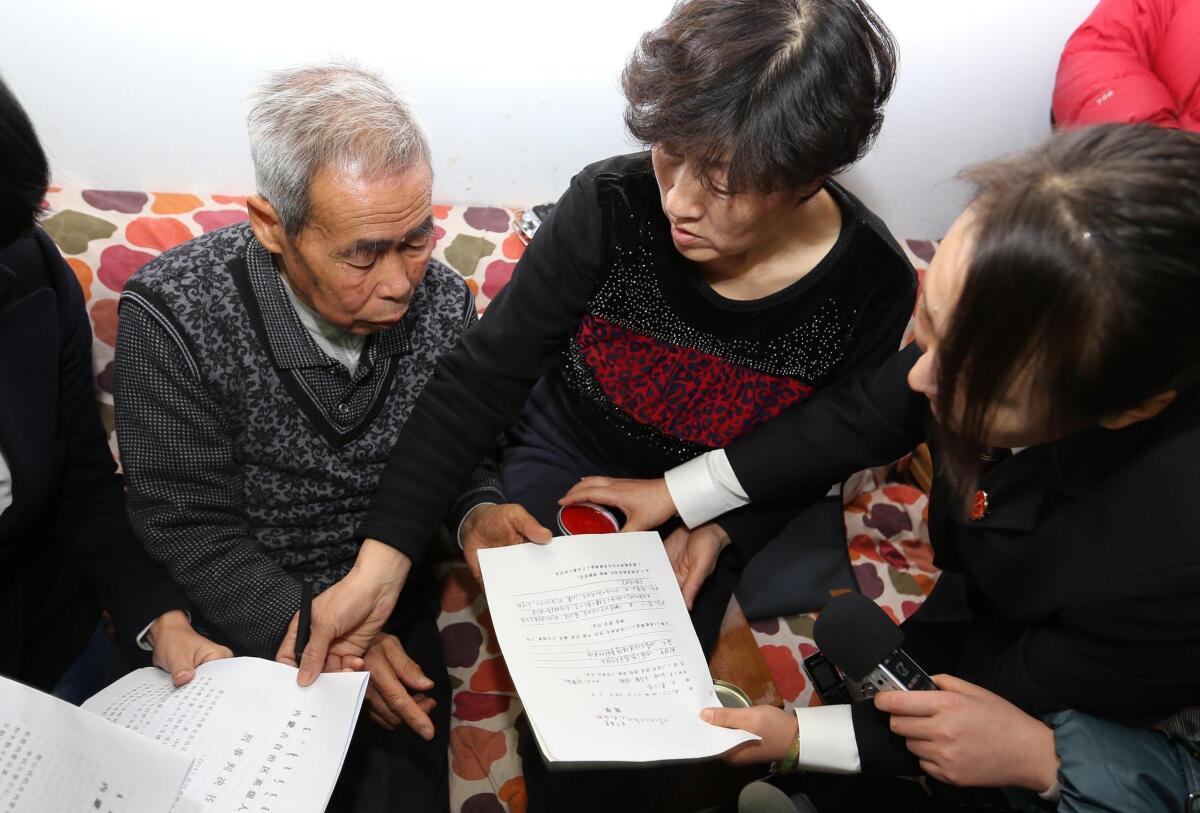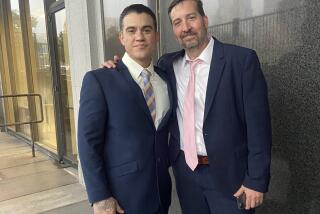Chinese court posthumously clears 18-year-old executed for murder

In a rare move that has captivated public attention, a Chinese court on Monday overturned a guilty verdict for an 18-year-old who was executed in 1996 for a rape and murder he did not commit. The reversal comes as Communist Party authorities are touting their determination to improve the rule of law in China.
“I sincerely apologize, I’m sorry!” Zhao Jianping, deputy director of Supreme People’s Court in Hohhot, Inner Mongolia, told the executed teenager’s parents. Zhao handed the bereaved couple $4,841 in compensation from the presiding judge of the court, Hu Yifeng, the official New China News Agency reported. Police officers responsible for the case are under investigation.
When China’s Communist Party leaders completed a high-level four-day meeting in late October, they pledged to “build a law-abiding government to safeguard judicial justice and improve judicial credibility.” But the extent of the changes remains to be seen; Chinese courts have a conviction rate near 100%, forced confessions remain commonplace and the judiciary remains under the firm control of the party.
Even without fundamental structural changes, though, some analysts say there is still significant room to improve China’s judicial proceedings. One week after the October meeting concluded, the Beijing-based Legal Evening News published what it touted as an exclusive scoop about the possible retrial of a murder case that led to the wrongful execution of the teenager, who went by a single name, Huugjilt.
Subsequently, the case started to attract significant attention in the Chinese media.
Huugjilt’s parents have been fighting for nearly two decades to prove their son’s innocence. On Monday, they rejoiced in the court’s move to clear their son’s name.
“We finally got the not-guilty verdict. We’re really grateful to all the people who paid attention to us!” his parents said in a post on their Weibo social media account. Local media reported that the couple and their older son visited Huugjilt’s grave after the decision was released and burned a copy of the verdict, in the hope of bringing him peace in the afterlife.
Huugjilt was charged with the rape and murder of a young woman who was killed in April 1996 in a public restroom next to the textile factory where he worked. He was sentenced to death just one month later and lost his appeal in June 1996. Huugjilt was executed by a firing squad on June 10, 1996, 61 days after the woman was slain.
Huugjilt initially told investigators that he was just passing by the restroom when he saw the victim hanging on one side of the wall and decided to report the case to the police. However, the leading detective on the case soon named Huugjilt as the primary suspect. Huugjilt confessed to prosecutors that he committed the murder during an interrogation in May 1996, the Guangzhou-based South Review magazine reported in 2009.
Forced convictions are common in China’s legal system. Police are often under intense pressure to solve cases as quickly as possible, and many suspects are not adequately represented by lawyers. State-run TV often airs video of incriminating statements made by detained suspects even before their trials are held.
In Huugjilt’s case, his confessions contradicted many details in the autopsy report. For example, his description of the victim’s height and hairstyle did not match with reality, the Supreme People’s Court in Hohhot said Monday.
Despite his parents’ protestations, the validity of Huugjilt’s conviction and execution was not seriously questioned until a serial killer responsible for the death of more than 10 people was caught in 2005 and confessed that his first victim was the woman Huugjilt was convicted of killing.
A few other Chinese wrongly accused of slayings have found belated justice in recent years, though such cases remain extremely rare.
In 2010, Zhao Zuohai was released from prison after the man he was convicted of killing in 1999 turned up alive back in his village. In 2002, Zhao had been sentenced to death for murder, although the death sentence was later commuted.
During the course of the investigation and prosecution in 1999, Zhao confessed to the slaying during nine interrogations, the Dahe Daily reported. Zhao told Chinese media that he confessed only after he was deprived of sleep and beaten by police officers. Two years after Zhao’s release, six police officers in charge of his interrogation were convicted of misconduct, and five of them received prison terms of up to two years.
The retrial and overturning of Huugjilt’s original guilty verdict gave hope to Zhang Huanzhi, the mother of Nie Shubin. Zhang believes that her son was also wrongfully executed in 1995 for the 1994 rape and murder of a woman.
Zhang spoke with Huugjilt’s mother, Shang Aiyun, by phone Monday upon hearing the news of the retrial. “She told me to hold on and said my son Nie Shubin could see the light of hope very soon,” Zhang told Sohu News.
Tommy Yang in the Times’ Beijing bureau contributed to this report.
More to Read
Start your day right
Sign up for Essential California for news, features and recommendations from the L.A. Times and beyond in your inbox six days a week.
You may occasionally receive promotional content from the Los Angeles Times.






